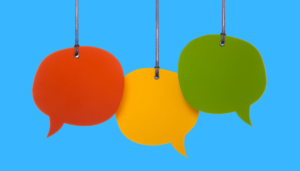 Every five years, those who live in EU countries elect a European Parliament and over 700 Members of the European Parliament are chosen to represent the people of Europe. But do we know them? Being based in Brussels I have had the opportunity to meet many MEPs and present the work of Eurodiaconia and our members – quite a normal way of work for a Brussels-based NGO – but actually, that is not enough. As we believe that it is the members of Eurodiaconia who are the experts in social questions, we wanted to find a way for members to engage directly with MEPs, to share their stories, projects, and views of their own countries. Building on work already done by several members in engagement with political representatives we developed the “Meet your MEPs” programme for this year, with the plan to work with members to have national events where members could simply meet their MEP.
Every five years, those who live in EU countries elect a European Parliament and over 700 Members of the European Parliament are chosen to represent the people of Europe. But do we know them? Being based in Brussels I have had the opportunity to meet many MEPs and present the work of Eurodiaconia and our members – quite a normal way of work for a Brussels-based NGO – but actually, that is not enough. As we believe that it is the members of Eurodiaconia who are the experts in social questions, we wanted to find a way for members to engage directly with MEPs, to share their stories, projects, and views of their own countries. Building on work already done by several members in engagement with political representatives we developed the “Meet your MEPs” programme for this year, with the plan to work with members to have national events where members could simply meet their MEP.
The COVID-19 pandemic has prevented us from implementing this project as planned but we have been able to hold a number of virtual meetings with members and MEPs. This week, members in Germany, Serbia, and Finland met with Mr. Romeo Franz, an MEP from Germany who is very active on Roma inclusion and fighting against discrimination. It is always a pleasure to hear what our members are doing – breaking down barriers, empowering people, ensuring accessible services, and engaging in advocacy – but it also good to sometimes be challenged. As I listened to the discussion today I was struck by how there were very similar approaches to Roma inclusion across our membership – but at the same time, we were challenged to think about whether or not we are homogenous in our approach or heterogenous in our approach? Do we prioritise co-creation of projects and services and do we truly understand valuable and effective participation? None of these are criticisms from our MEP friend but rather important reflections that will enable us all to think about both practice and advocacy effectively. And here is why I think this is important.
When we have conferences and events – important as they are – we often speak “at” the participants, not “with” the participants. What impressed me about the “Meet your MEPs” event is that there was a conversation, a debate, and proper reflection. I think that this is because our members showed they really knew what they were talking about, because we were able to have a semi-informal atmosphere, and because our MEP guest really wanted to discuss and go into the heart of the topic.
MEPs, and all political representatives, can sometimes seem like a distant group – but our experience has shown a willingness on their part to have an attitude of mutual respect, to discuss, debate, and to work in partnership. We want to have more of these meetings, more opportunities for members to engage with their representatives, and more partnerships to build and implement better social policies in Europe. So, have you met your MEPs? Have you thought about arranging a meeting? Even if you are not in the EU there are many issues that are still relevant and many MEPs who want to meet you. Our democracy in Europe will only work if there is full and equal participation in public debate – let’s make sure that Diaconia is part of the conversation. So watch this space – there will be more coming!
Have a good weekend,
Heather